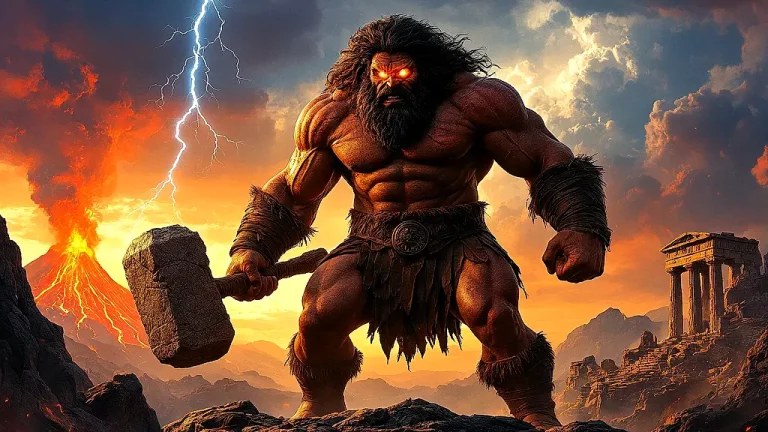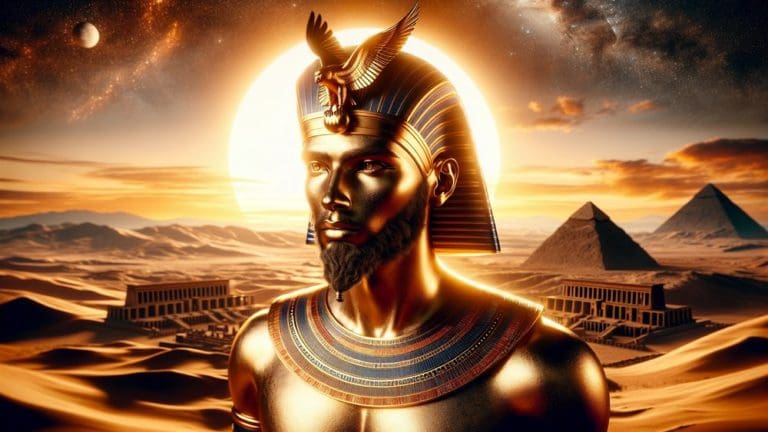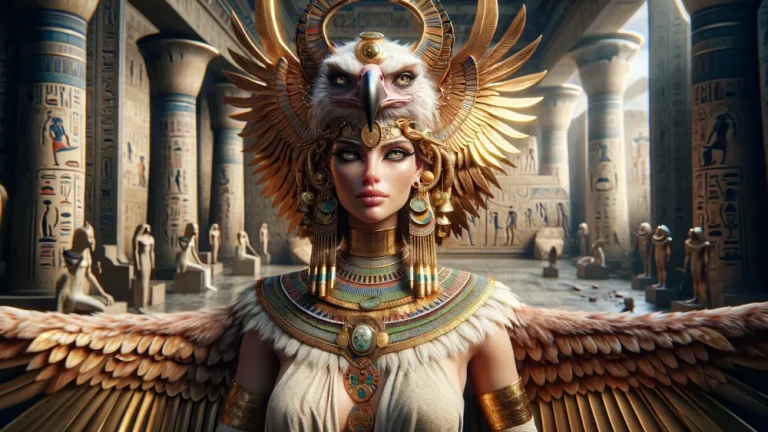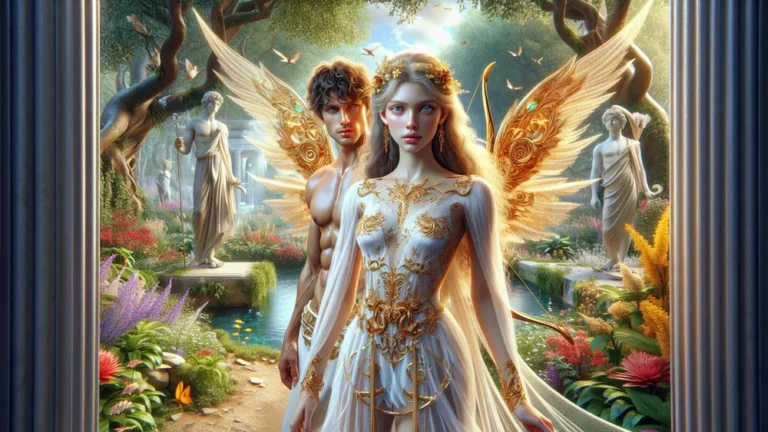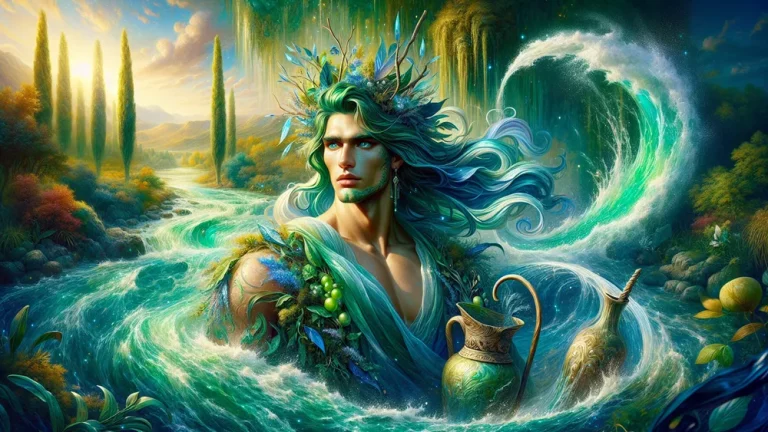Macaria: Greek Goddess Of Blessed Death And Hades’ Daughter
When you look at Greek mythology, which is full of many powerful gods and interesting stories, there is Macaria. Sometimes she does not get as much attention as the more famous Olympian gods, but she is important because she stands as the symbol of a happy death, which is more of a gentle and calm movement to the place after living.
Key Points:
- Macaria is the goddess of gentle death, known as the daughter of Hades and Persephone.
- Her Greek name means Blessed, she represents peaceful dying.
- Unlike Thanatos, who personifies death, Macaria is about a gentle way to the next world.
- She appears in stories like the Eleusinian Mysteries, supporting life’s cycle.
- Macaria is mentioned modestly in old texts such as the Suda.
- Some rituals focused on her, emphasizing calmness in death.
- Compared to other cultures, Macaria stands out for her gentle, non-judgmental approach.
In lots of ancient Greek stories that might change from one telling to another since they were mainly told by mouth and passed on in pieces, we find out about Macaria. People mostly know her as the daughter of Hades, the god for the below world, and Persephone, which adds complexity to where she stands in the levels of gods.
In this blog post, you will take a trip through her beginnings, how people see her, and why she is significant, showing how she is different from other gods related to death like Thanatos and Hecate.
This full look at Macaria means you’ll get not only a deeper knowledge of Greek mythology, but it will also let you see how the old people thought that living and dying were parts of the same life journey.
Macaria: Overview and Key Facts
| Key Aspect | Details |
|---|---|
| Name | Macaria |
| Meaning | The name she has means “Blessed” or “Blessful,” showing her role as a symbol of a calm end. |
| Family | Child of Hades and Persephone, the god of the below world and the goddess of springtime. |
| Role in Mythology | She stands for a calm move to death, making her different from other, more scary ideas of death. |
| Association | Mostly linked to the below world and the steps around death and afterlife in Greek mythology. |
| Difference | Unlike Thanatos, who is death himself, she represents a soft and blessed way to the afterlife. |
| Cultural Significance | Though not well-documented, old texts and customs point to her historic importance. |
| Worship and Rites | Involved in certain group activities and rituals, but less so than other gods in the Greek group. |
Macaria: The Greek Goddess of Blessed Death
When we look deeper into the mysterious world of Macaria, her beginnings come to light, and we also see what she stands for. Meanwhile, we consider the stories that explain her as a god of quiet moving onward.
Where Macaria Comes From in Greek Stories
In Greek mythology, Macaria’s beginnings tie closely to the underworld, mainly known as the child of Hades, the stern boss of this realm, and Persephone, the light goddess who means both new life and the cycle of living and dying.
Her family puts her in a special spot among the gods’ levels, making her not just a link between the earth and the world below, but also a sign of the good afterlife. It’s like she’s part of a royal group in these myths, with the underworld as her main area.

Her connection with her parents points to the balance between living and dying that she often means. Even though there aren’t many old writings that talk about Macaria and her stories might not be as big as those of her god relatives, her family line makes her a complex figure within the group of gods.
Macaria’s place in old myths is seen alongside other gods she knows or is linked to. In this way, her role becomes clearer through her links and influence, showing how she fits into the ideas about dying and moving on. Some important connections are:
- Hades: As her dad, Hades’ control over the underworld gives Macaria her main area of influence, meaning peace and acceptance in dying.
- Persephone: The role of her mom in both nurturing life and ruling over the dead mirrors Macaria’s meaning of a peaceful afterlife.
- Demeter: Though not directly linked, Macaria’s family ties bring her into the circle with Demeter, Persephone’s mom and the harvest goddess, further weaving her into life’s constant change.
By looking at these godly connections, we get a complete view of Macaria’s role within the storytelling and spiritual lessons about good death and life after death.
Macaria, a lesser-known figure in Greek mythology, represents a harmonious afterlife through her unique family ties, being the daughter of Hades and Persephone, which connect her to themes of death and rebirth.
What Macaria Represents and Her Meaning
In Greek stories, Macaria is known for being the goddess who means a calm and blessed way into death, unlike the scarier images that usually come with this idea. Basically, her role feels like that of a kind helper, one who makes sure the move from our world to the next one brings peace, not fear.
In this way, her presence matters a lot when we think about the ancient Greeks’ complex stories about death, which cover many feelings and symbols tied to dying. Macaria shows that death can be both calm and certain, which was a part of old cultures trying to find comfort in knowing life will end.
You might think of this idea like songs for children at night, which help stop fears and bring quiet – an actual way to face the unknown. Learning about Macaria makes more sense when you see her next to other gods linked to death.
Thanatos, for example, shows the idea of death completely, often pictured as a tough end, while Hecate reaches outside that, being a goddess tied to magic, ghosts, and intersections – both real and as ideas of living and dying. Unlike these gods, Macaria does not focus on the serious or magical parts of death but on a good moving on, which makes her different among these gods.
To simplify, if Thanatos shows that death must happen, and Hecate stands for its mystical parts, then Macaria is the quiet certainty that gives peace and agreement in this path.
| Deity | Represents | Essence | Difference with Macaria |
|---|---|---|---|
| Macaria | Calm passing away | Kind helper | Means peace in moving on, unlike others focusing on death’s acts or ceremonies. |
| Thanatos | Death itself | Serious end | Means death must happen and is final. |
| Hecate | Magic and intersections | Magical guide | Controls links of life, death, and magic – more magical than calm. |
Through this comparison, Macaria’s special role is clear, showing her place not just in stories, but as a comforting idea around ideas of dying.
This helps show the bigger shared values and worries about death, a significant piece of how people think about and explain life’s end.

Tales and Adventures of Macaria
Although Macaria might not often appear in old stories like the bigger gods, her role in tales about the underworld somehow adds interest and understanding to what she means as a god. One story shares her small but important part with her mother, Persephone, in the Eleusinian Mysteries, which are some of the famous Greek religious events.
These mysteries focused on the repeating cycle of life and death, with Persephone’s yearly trip to visit Hades and then coming back again each year to explain this ongoing cycle.
Macaria might not be the main character in these stories, but her attendance adds to the themes of change and rebirth – showing how her part as a keeper of a calm death is added to bigger stories about life not lasting forever.
Macaria is much like a helper who makes sure changes are peaceful, and her being there gives relief in these moments of change that are so important in these old tales. Another thing about Macaria’s stories can be seen when she is with others from the underworld.
She is known as a daughter in the world of the dead, allowing her to offer a special way of helping lead souls safely into the next life, working with her father’s rules. Her place in underworld tales, where life and death mix together, is like a director who makes sure an orchestra stays in sync, making sure everything works together nicely.
This image means she is important in making sure changes are smooth, matching her godly duties in the complex stories from Greek myths. The Eleusinian Mysteries tell us more than just the usual sprouting celebrated by Demeter and Persephone and keeps us wondering about other activities of the gods below.
Macaria’s role shows not just the goal of these events – taking away the fear of dying and lessening sorrow – but also accepting life’s end with calm and readiness. Although her tales within these events are not large, they help see her symbolic meaning and make her known as a god of peaceful death, bringing a comforting connection in the stories shows life’s two sides.
Through this setup, Macaria confirms her spot as a small but vital part of the stories of living, dying, and starting over.
Macaria’s Mentions and References in Ancient Writings
Macaria is mentioned a little in old Greek writings, but it’s important and means something about her quiet but long-lasting impact in ancient religious thinking. One important mention is in the “Suda”, a big 10th-century Byzantine dictionary of the old Mediterranean world.

The “Suda” offers a complete dictionary that includes Macaria when talking about different gods and old stories, highlighting her role in the cultural and religious setting of that time. Even though there are few mentions, they mean Macaria’s long-lasting link to the ideas of death and change, like a small but important thread in a big woven piece that holds a lot of weight in the larger design.
Her role in these writings is similar to how a small role can make a story richer by representing important ideas that echo through the whole story.
Interestingly, Macaria’s impact reaches into early Greek ceremonies and religious customs, where she was known in groups and events that saw death as a natural change instead of something scary. These ceremonies, while not fully recorded, mean that people acknowledged her role in leading dead people to a blessed afterlife. Her part is like a watcher of important parts within religious events, to make sure beliefs about this change were followed. The long mentions and respect seen in writings help us get Macaria’s quiet yet main part in old Greek ideas about death, getting the main idea of peace and adjusting that her mythological presence means. Here are some key mentions of Macaria:
- “Suda”: Byzantine dictionary talks about Macaria’s job and links in Greek stories.
- Early Greek Ceremonies: Written presence in events focusing on death as a calm change.
These mentions, although brief, appear in the wider picture of myths and religious practice, saying she’s a sign of calmness in the final life change.
Honoring Macaria: Traditions and Ceremonies
In the ancient Greek religion world, honoring Macaria, though not as well-known as the Olympian gods, was important in some local traditions. Macaria’s link to a blessed death was respected by a few groups who focused on accepting mortality gently. These rituals might include ceremonies that put importance on peace in death, therefore highlighting the smooth change she stood for.
For example, similar to modern memorial services, Macaria’s rites put focus on remembering a good life and helping a calm move for those who have passed. This idea pointed to a wish in parts of ancient societies to find comfort in death seen as life’s new step, rather than its end.
Specific places solely focused on Macaria are few, and mentions of her groups aren’t many compared to others, but some regions might have recognized her as part of large ceremonies about the underworld. For instance, places known for the Eleusinian Mysteries – events tied closely to her mother and life-death-rebirth themes – might have indirectly honored her through their views of death’s calm change. Here’s a simple list of important aspects related to Macaria’s worship:
- Group Practices: Focused on peace in death, maybe tied in with known festivals like the Eleusinian Mysteries.
- Key Places: Areas that took part in the Eleusinian Mysteries could include her ideas in their events.
These practices of worship, whether directly connected or not to Macaria, highlight her quiet but long-lasting part in old spiritual life, reflecting a culture’s search for calm and quiet in facing life’s sure passing.

Comparative Mythology of Death Deities
When we look at the easy effect of Macaria’s worship practices, it’s interesting to look at and see how her special features compare and differ from death deities from other places.
How Macaria Stacks Up Against Other Cultures’ Death Figures
Macaria acts like a deity of peaceful death, and her softness makes her different from other death deities in many cultural stories. In Egyptian beliefs, Anubis works as a similar figure but with specific differences. He is a keeper of graves and helps spirits move through the afterlife.
Anubis is involved in preparing bodies and in making decisions about souls, weighing the heart against a feather to decide where a soul goes. This is different from Macaria, who helps with having a kind death instead of making decisions. Here, you might see Anubis as someone who opens doors or makes judgments, while Macaria means more of a calm guide, helping souls without forcing control or making decisions.
Then, in the stories of the Norse people, Hel rules a place named Helheim for those who did not die in battle. Hel is somewhat like Macaria because she also looks after a place for the dead. But her picture is darker. Part of her looks alive and part looks like decay, which means the two sides of death in Norse thought.
Compared to Hel, Macaria gives a more kind view of death, as if like a caring person who readies a gentle space for the last stage of life. In Hindu beliefs, Yama, being both a god of death and moral right, leads the dead with attention to what a person did in life.
Unlike Macaria, who cares about the calm change itself, Yama gives importance to moral law and the certainty of rebirth because of karma. This points out both cultural differences and common ideas about what happens after and making moral decisions.

Macaria, a gentle guide in death unlike other death deities, offers a kind transition without judgment, showing cultural differences and shared beliefs about the afterlife and moral decisions.
Macaria’s Role in Mythological Art and Writing
Macaria is part of old art and writing, and although she isn’t as well-known as some gods, she gives interesting views into how cultures see death as a calm change.
In pieces of art and literature where she is shown, Macaria is described with pictures that bring to mind tranquility and peace, similar to the items artists now use to make a relaxing place. There could be small ideas in these pictures, like light or soft veils, which highlight her job as a helper toward a peaceful end.
In stories, we see her part when she helps make life’s gentle change, giving rest and comfort in tales and standing for the gentle side of the underworld’s beliefs.
These artistic and literary depictions show a society’s picture of a kind death, bringing out her special part in the story of myth by showing the end of life not as the finish, but a continuation into what feels like a serene eternity.

Exploring the Greek Gods and Goddesses
The group of Greek mythology is full and big, having many gods and goddesses, each with their own areas, tales, and effects on old Greek culture. When you look deeper into these mythical stories, you see how they hold the mix of life by showing love, heroism, fate, and fear.
To help with your look into this, you can check a full list with all Greek Gods, where each god’s story and part are given, meaning a complete look at this exciting mythological tapestry.
FAQs
1. Who are Macaria’s parents and what role did she play within the underworld?
Macaria’s parents are Hades and Persephone, and within the underworld, she played the role of a goddess associated with blessed death, offering a peaceful transition to the afterlife.
2. In what art forms and texts is Macaria most commonly represented?
In what art forms and texts Macaria is most commonly represented can be found in minor classical texts like the “Suda” and scarce ancient art where her interactions in the underworld, often overshadowed by major deities, reflect her subtle presence.
3. How do worship practices for Macaria differ from those of other death-related deities?
Worship practices for Macaria differ from those of other death-related deities by emphasizing peaceful transitions and celebratory rituals rather than somber or fear-inducing ceremonies.
4. What are the known myths specifically linked to Macaria, and how do they highlight her attributes?
The known myths specifically linked to Macaria often emphasize her role in facilitating peaceful deaths, as seen in interactions like those depicted in the myth of “The Eleusinian Mysteries,” where she represents the serenity of the soul’s transition through the underworld.


